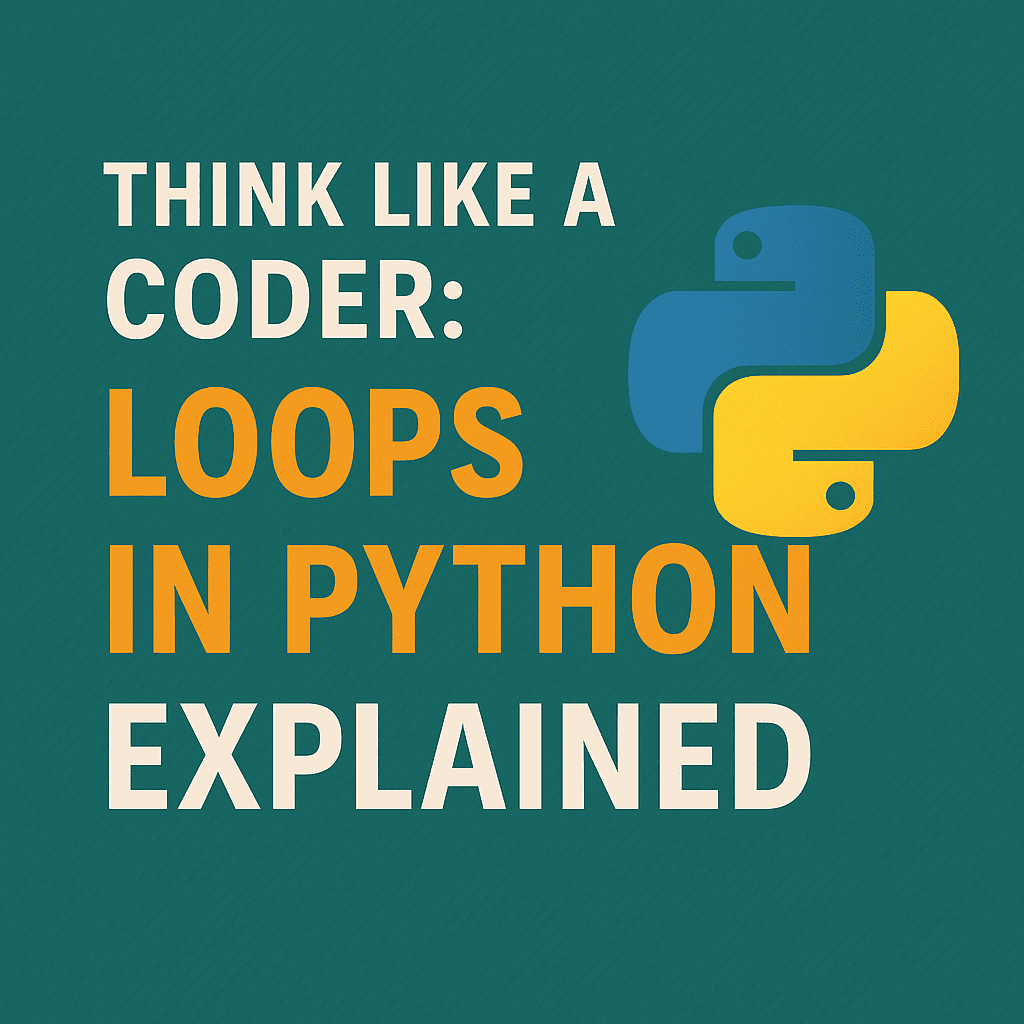Think Like a Coder: Loops in Python Explained

? What Are Loops in Python?
Loops are a core concept in Python programming. They allow you to repeat a block of code multiple times without having to rewrite it. Whether you’re going through items in a list or automating repetitive tasks, loops help make your code faster, cleaner, and more efficient.
Read More: Think Like a Coder: Loops in Python Explained
? Why Loops Matter in Real-World Coding
In real-world programming, repetition is everywhere. Developers often use loops to process data, clean up files, or execute logic several times in a row. Without loops, these tasks would require much more time and manual effort.
By using loops, Python can handle complex, repetitive actions in just a few lines—freeing you up to focus on solving bigger problems.
? Two Common Types of Loops
Python has two main loop types:
- For loops – Best when you know how many times to run an action.
- While loops – Ideal when repetition depends on a condition.
Understanding when to use each type helps you write logic that fits the task you're working on.
? Thinking Like a Developer
Skilled developers don’t just write code—they solve problems step by step. Before using a loop, they ask:
- What needs to be repeated?
- How many times should it happen?
- Should the loop stop based on a condition?
These questions help guide how a loop is used and where it fits in the overall logic.
⚙️ How Loops Improve Your Code
Loops help reduce repetition, improve clarity, and make your code adaptable. They’re especially useful for handling lists, automating tasks, and running checks across multiple items.
When used properly, loops make your scripts easier to update and expand later.
? Common Looping Mistakes
Beginners (and sometimes pros) may run into loop-related problems, such as:
- Infinite loops that never stop due to incorrect conditions.
- Off-by-one errors from misjudging when to begin or end the loop.
- Trying to do too much in a single loop, which can hurt readability.
Learning to avoid these mistakes is part of becoming a more efficient developer.
? Practice Makes Progress
The best way to build confidence with loops is by using them regularly. Start small—like repeating a message or reviewing a list of names—and then move on to real-world problems, such as sorting or filtering data.
Each project builds your problem-solving mindset and helps you think more like a coder.
? Final Thoughts
Loops are one of the most valuable tools in Python. They make your code smarter, not just shorter. As you continue to explore how loops work, you'll start to recognize patterns and know instinctively when a loop is the right solution.
In time, this habit of breaking down problems and applying logical repetition will become second nature—and that’s exactly how developers think.
Visit Here: https://www.fusion-institute.com/loops-in-python:-think-like-a-developer
- Art
- Causes
- Best Offers
- Crafts
- Dance
- Drinks
- Film
- Fitness
- Food
- Oyunlar
- Festival
- Gardening
- Health
- Home
- Literature
- Music
- Networking
- Other
- Party
- Religion
- Shopping
- Sports
- Theater
- Wellness



